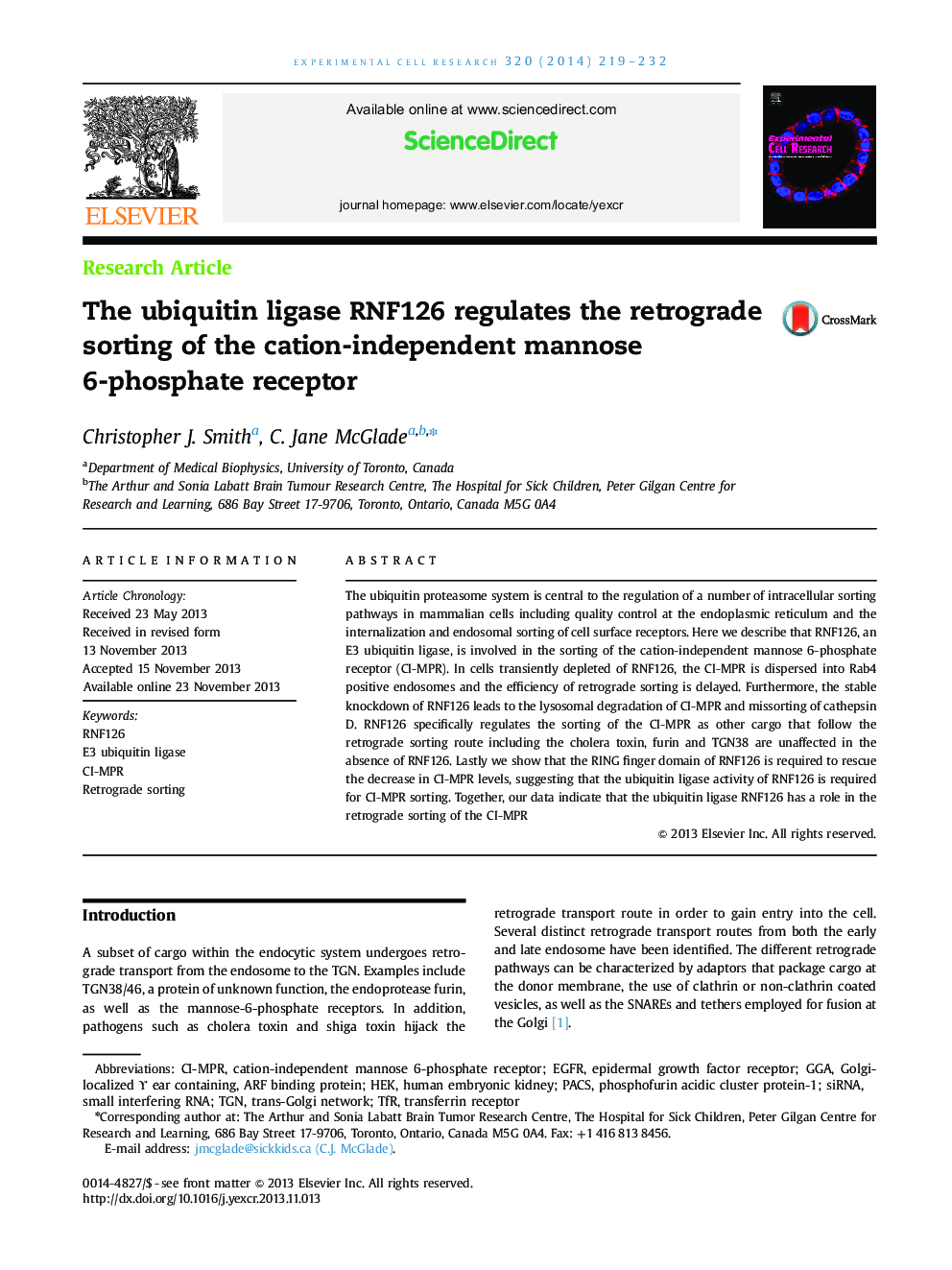| Article ID | Journal | Published Year | Pages | File Type |
|---|---|---|---|---|
| 2130385 | Experimental Cell Research | 2014 | 14 Pages |
•Depletion of RNF126 perturbs the steady state localization of the CI-MPR.•RNF126 is required for the efficient retrograde sorting of the CI-MPR.•The RING domain of RNF126 is required for CI-MPR sorting.•In cells depleted of RNF126, the CI-MPR is retained in Rab4 positive endosomes.•RNF126 is dispensable for the sorting of other retrograde cargo.
The ubiquitin proteasome system is central to the regulation of a number of intracellular sorting pathways in mammalian cells including quality control at the endoplasmic reticulum and the internalization and endosomal sorting of cell surface receptors. Here we describe that RNF126, an E3 ubiquitin ligase, is involved in the sorting of the cation-independent mannose 6-phosphate receptor (CI-MPR). In cells transiently depleted of RNF126, the CI-MPR is dispersed into Rab4 positive endosomes and the efficiency of retrograde sorting is delayed. Furthermore, the stable knockdown of RNF126 leads to the lysosomal degradation of CI-MPR and missorting of cathepsin D. RNF126 specifically regulates the sorting of the CI-MPR as other cargo that follow the retrograde sorting route including the cholera toxin, furin and TGN38 are unaffected in the absence of RNF126. Lastly we show that the RING finger domain of RNF126 is required to rescue the decrease in CI-MPR levels, suggesting that the ubiquitin ligase activity of RNF126 is required for CI-MPR sorting. Together, our data indicate that the ubiquitin ligase RNF126 has a role in the retrograde sorting of the CI-MPR
